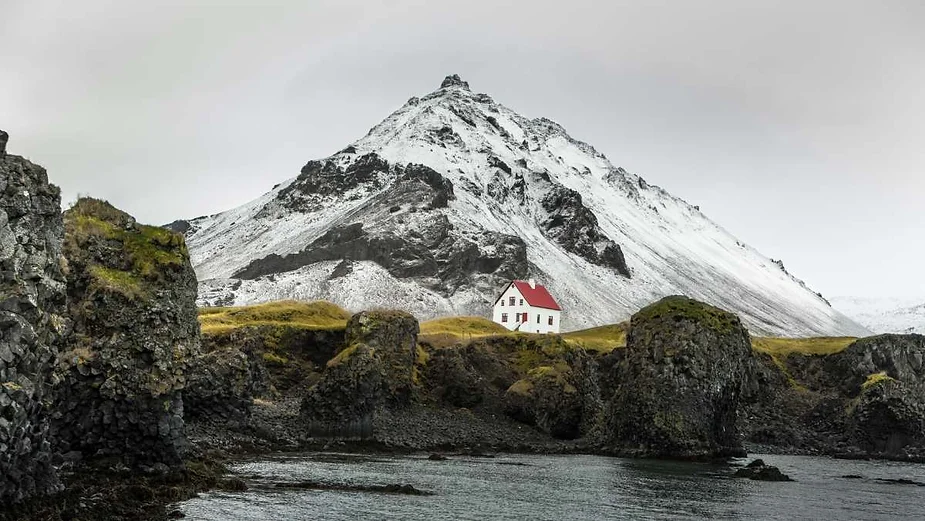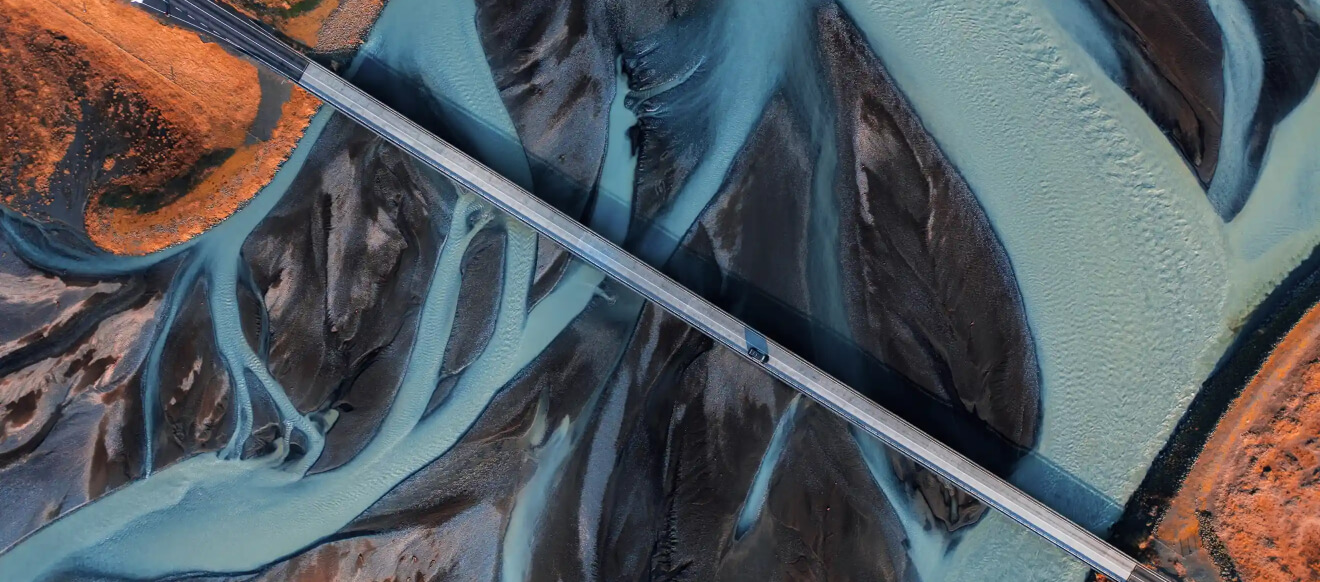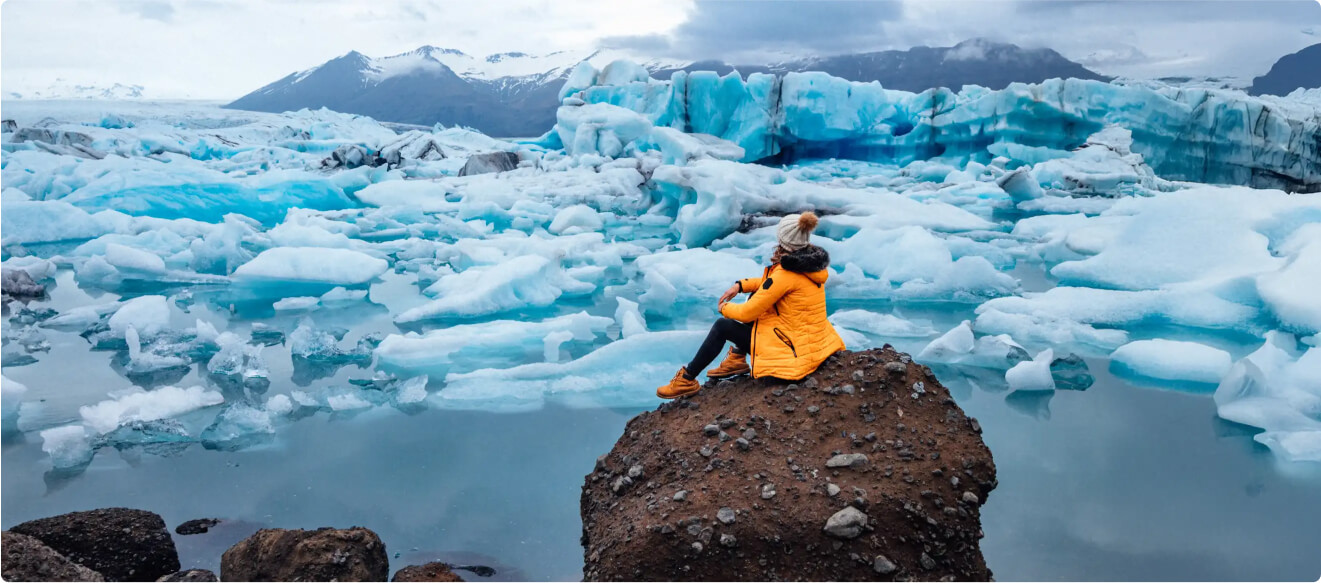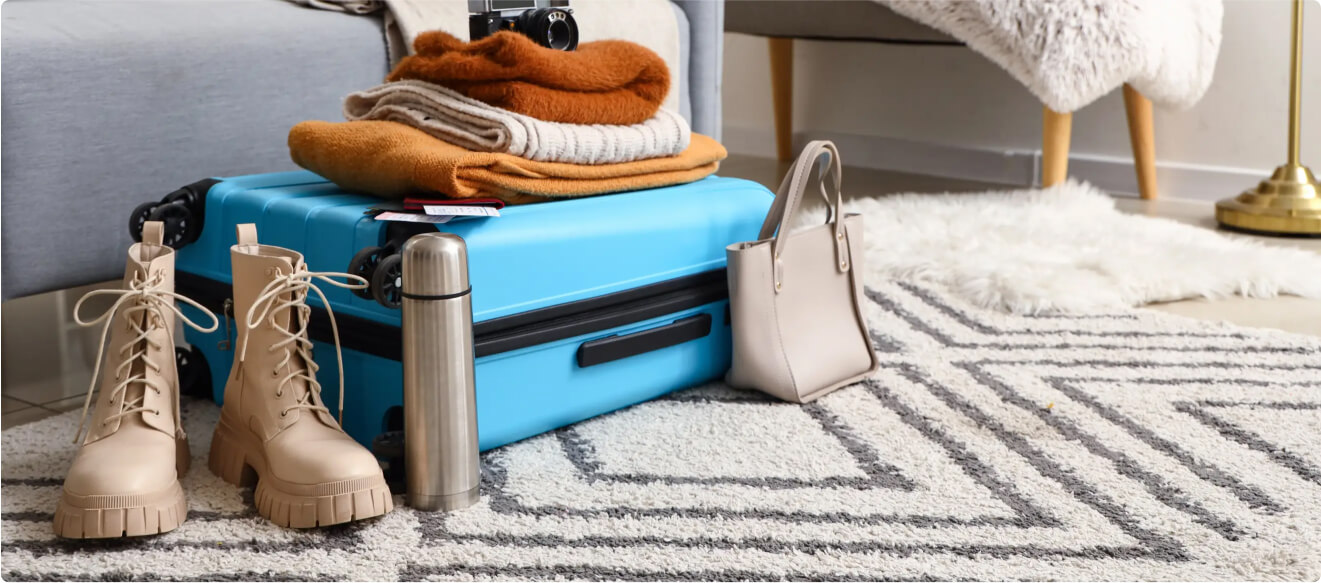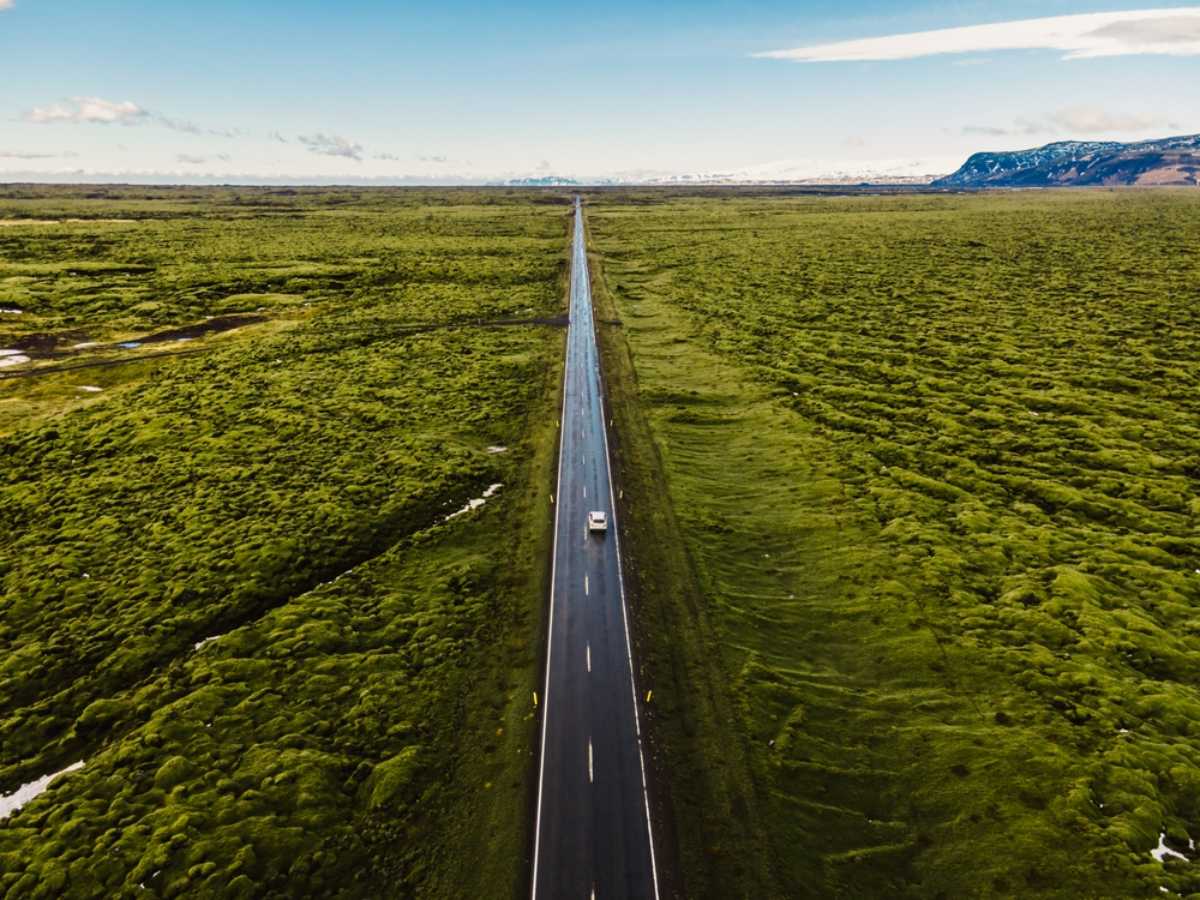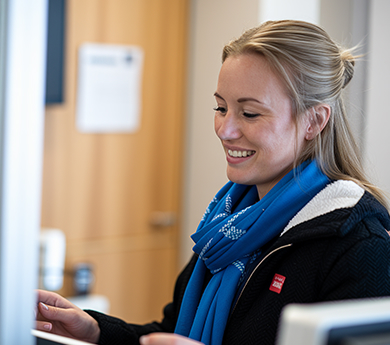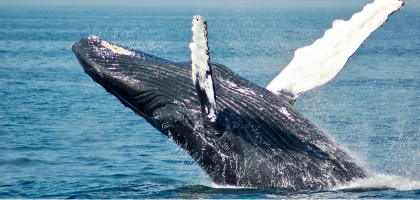Are you thinking about living in Iceland for good? It is quite natural for someone to fall in love with this stunning island during their travels. Now, deciding to have a home and live here “happily ever after” is a huge step.
Iceland is a gorgeous country, there is absolutely no doubt about that. The fairytale-like land, crystal clear water, fresh air, and the beautiful sky with the dazzling Northern Lights. Who wouldn't want to live in this heaven on earth?
But before you pack your bags and buy a one-way ticket, research everything about what it's like in Iceland. It should not be an overnight decision. You must learn about life here. What is the average cost of living? What are the places to live in Iceland? How early can you get your work permit? Where should you live in Reykjavík? How much is a house in Iceland?
It is better to know the answers to all of these questions before your plane lands in your new country. The best way to gather practical information is to join relevant Facebook groups. There, you can communicate with people who have immigrated to Iceland and those who are locals from here.
Living in Iceland: The Scenic Beauty
As a visitor, you can rent a car in Iceland and enjoy the sights and sounds of the country. But once you decide to call it your new home, you need to know several things about this beautiful island. So, what is living in Iceland like?
Someone once told me that you will either love moving to Iceland or hate it, you can't be on the fence. There is so much to love about this Land of Fire and Ice. From the black beaches like Reynisfjara to blue glaciers like the mighty Vatnajökull. Stunning waterfalls like Godafoss, serene parks, to uncountable tourist attractions.
But at the same time, certain things may be quite new to you; for instance, the Iceland weather, culture, and language. I would suggest you start with a fresh mind. Once you get the hang of it, life in Iceland is simple and extremely pleasant.
How Many People Live in Iceland?
Let’s face it. When you first searched for Iceland’s pictures, it may have looked like only frozen land. You may have asked yourself: do people live in Iceland? You don’t think there would be life thriving under a constant blanket of snow, but guess what? Once you visit it, you will realize it’s a different world – and a gorgeous one!
With a population of 360,390 people, Iceland is the most thinly populated country in Europe. It has one of the smallest populations per square mile (or kilometer) in the world - read more about the Icelandic people and what they are like in our dedicated blog post.
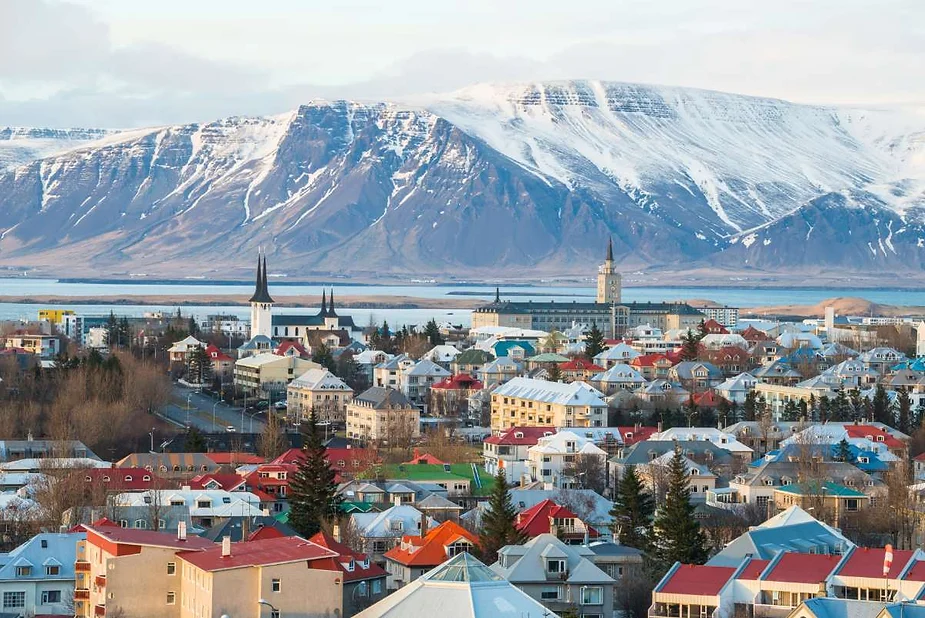
Locals Living in Iceland
The following are some interesting facts regarding the locals living in Iceland:
-
Icelanders are hardworking people who have created life on this island of volcanoes and glaciers. They are genuinely nice and friendly people. Icelanders are well-educated, and many of them have advanced degrees. They also have a great interest in politics and travel.
-
Although the Icelandic language is the official one, almost 98% of the locals who live in Iceland speak English. This makes life easier when you first start living in Iceland. However, you must learn the Icelandic language for work and social integration.
-
The population on the island saw a slight dip in 2009 due to the financial crisis, forcing many to seek financial stability abroad. But it recovered, only to take another knock with the outbreak of Covid. But we are glad to announce that since 2020, the general population is steadily increasing again.
-
The number of foreigners living in Iceland has grown. By 2017 the number of foreigners nearly doubled from 2015, 7 461 to 14 929. As can be expected, this number took a knock with the outbreak of Covid, but has since started climbing again to almost 11,000 today.
-
Contrary to myth, Icelanders are no more homogeneous than other nations out there. Due to its location and isolation of the population in remote regions on the island, it’s true that the population was once quite homogeneous. However, due to development, economic growth and immigration, this has changed in the past half-century. Iceland's diversity increased, and it is now as heterogeneous as most other countries.
-
Iceland’s gender ratio is pretty equal. Women make out roughly 49.7% of the population, whilst men make out 50.2%. That means that there are approximately 100.9 males for every 100 females.
-
Iceland is predominantly Christian. Most are part of the Lutheran State Church (60.9%), whilst the rest of the denominations clock in at the Catholic Church (3.9%), the Free Lutheran Church in Reykjavík (2.6%) and the Free Lutheran Church in Hafnarfjördur (1.9%). There are other Christian denominations (1.9%), and the Independent Lutheran Congregation (0.85%).
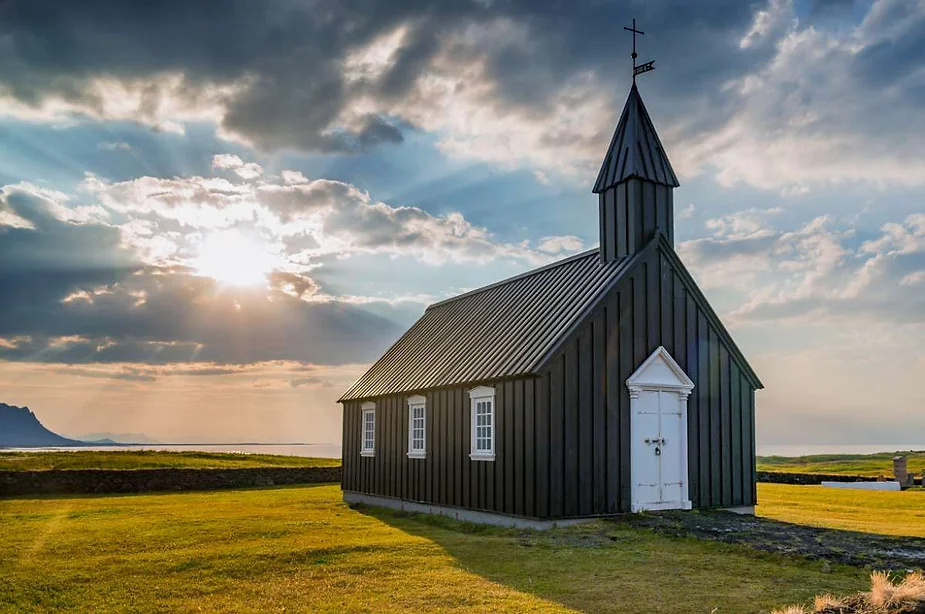
Weather: What is it Like in Iceland?
Iceland’s weather is generally cold and rainy. The winters are cold and dark. By contrast, the summer season has extremely long days. Once you get used to the conditions here, you can plan your activities like working, shopping, and traveling accordingly.
Below, you will find a table with an overview of what you can expect from the various seasons:
|
Season |
Avg Temperature |
Avg Wind Speed |
Avg Rainfall |
|
Winter |
0 degrees Celsius |
26 km/h |
75.6 mm |
|
Spring |
3 degrees Celsius |
20 km/h |
58.3 mm |
|
Summer |
10 degrees Celsius |
13.6 km/h |
50 mm |
|
Fall |
3 degrees Celsius |
17.6 km/h |
85.6 mm |
Best Places to Live in Iceland
If you are still wondering where to live in Iceland, the following are considered to be some of the best places to live in Iceland:
Reykjavík
Reykjavík is the capital city of Iceland and, usually, the first stop visitors make after landing at Keflavik Airport. As the capital city, it’s not surprising that this is where most people live in Iceland. The city is Iceland's hub of food, art, culture, and nightlife.
And besides the city buzz, there's so much you can see and do nearby. From visiting hot springs to hiking volcanoes near Reykjavík. The capital of Iceland may be small, but it offers a truly unforgettable experience for any city or nature lover.
Reykjavík is also the place where there are the most job opportunities. Luckily, there is a public transport system operating so efficiently, having a vehicle is really not necessary. And, in any case, parking in Reykjavík is not as challenging as parking in other capital cities around the world.
Even though Reykjavík is considered one of the major cities in Iceland, crime rates are extremely low. In fact, Iceland in general has officially been named the safest country in the world (again!). As is often the case with major cities, accommodation and other living expenses can be quite pricey. Still, that is generally taken into account in terms of people’s salaries.
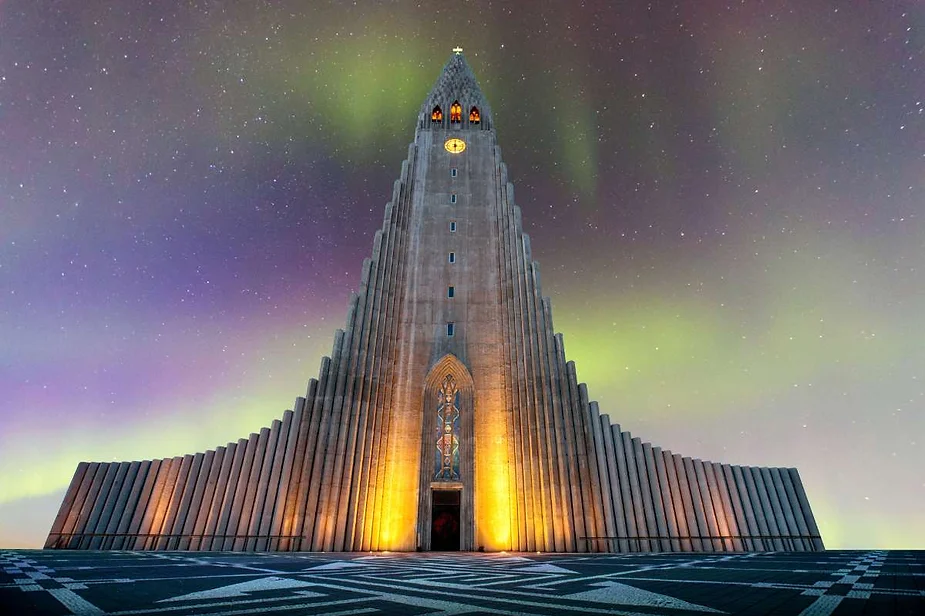
Akureyri
Akureyri is the second-largest city in Iceland and is referred to as the capital of the north. So, you have all the benefits that living in Reykjavík brings to the table, except that it’s located in the north.
Do you enjoy being on the go, only in beautiful surroundings? Then Akureyri is a good option. If you can afford to live in the city and your job is in Akureyri, it is a perfect place to enjoy the activities and attractions in the north.
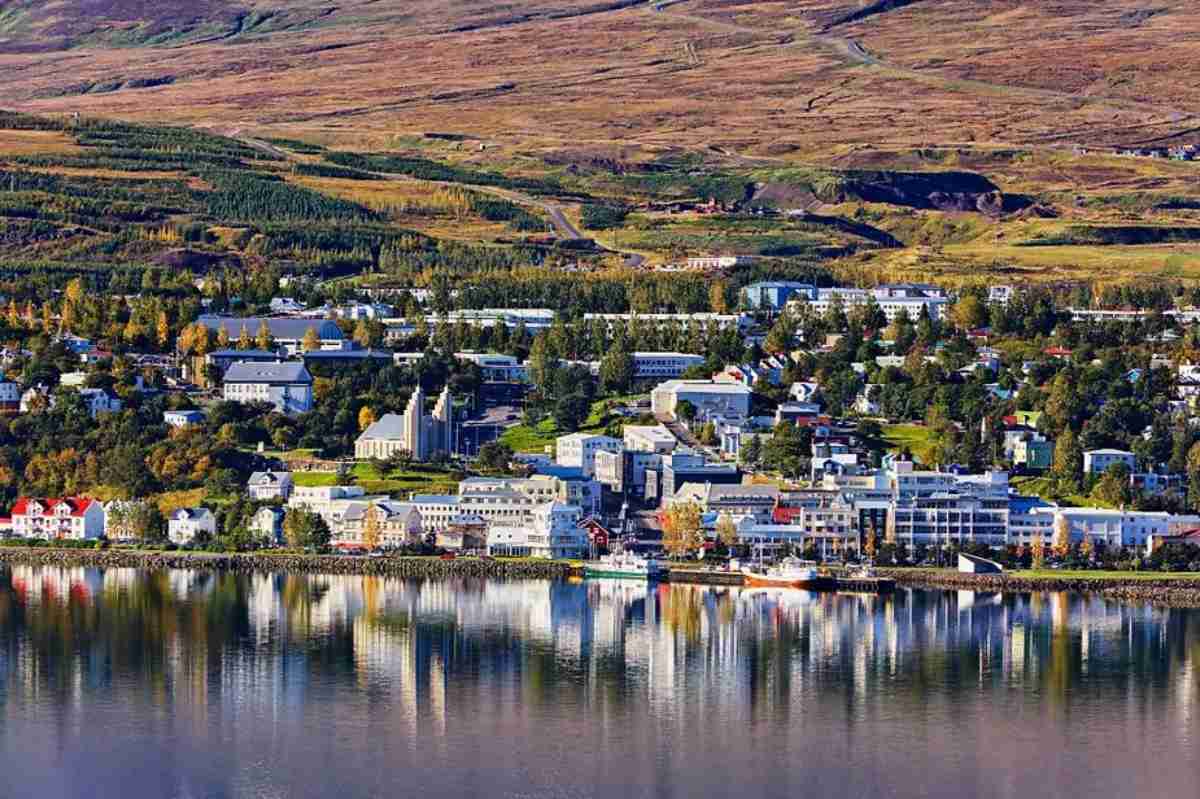
Hafnarfjördur
Hafnarfjördur is practically the neighbor of Reykjavík. It is a port town that is known for its industrial areas. If you’re living in Hafnarfjördur the odds are that you’re working somewhere in the city.
The city is definitely not the wine-and-dine and buzzing nightlife some of the bigger cities have to offer. Still, it’s known for its family-friendly facilities and atmosphere. Hafnarfjördur is also a city rich in history and is most famous for its Viking Village and the annual Viking festival.
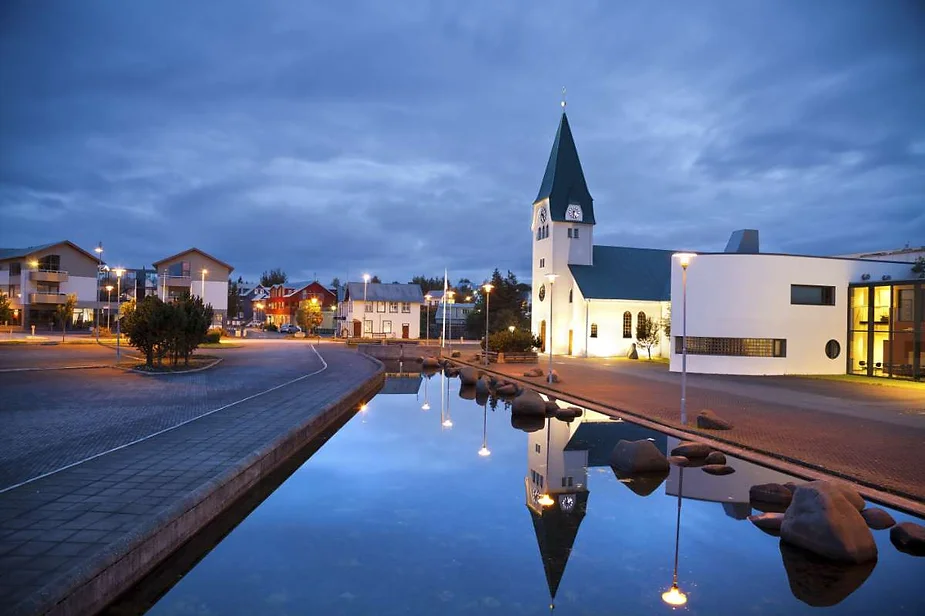
Kopavogur
Kopavogur is situated in western Iceland and just screams new. Unlike Akureyri that’s the second-largest city in Iceland, Kopavogur is the second-largest municipality. It is also the most modern and fastest-growing residential suburb on the island.
So, do you like to be at the forefront of development and enjoy sports? Then Kopavogur with its modern edge and various sports clubs is the perfect place for you. Just keep in mind that all these perks come at a price.
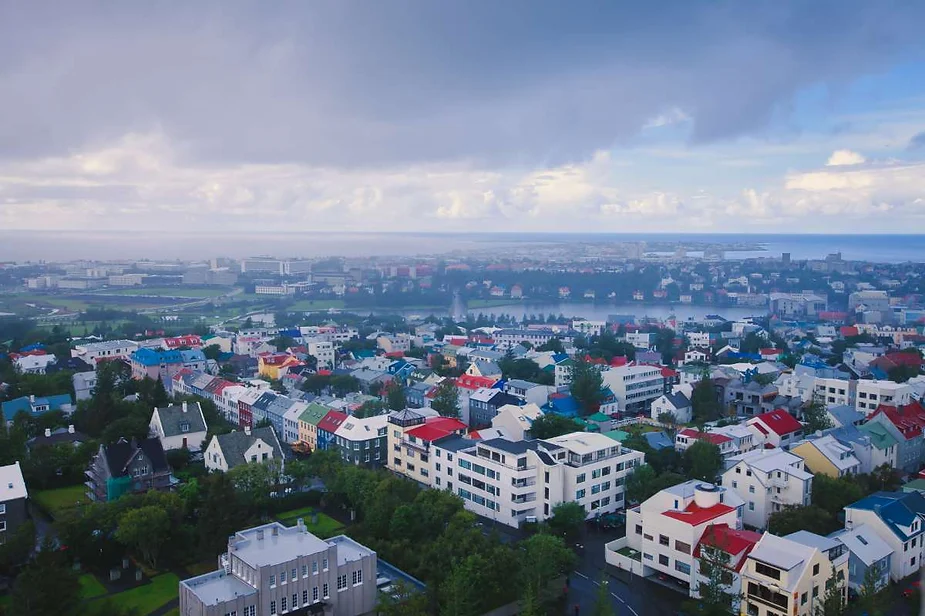
The Westfjords
The Westfjords is a more remote part of Iceland. It is characterized by mountainous terrain, a coastline with dozens of fjords. And, of course, some of the spots to see the legendary Icelandic Puffins. Due to its remoteness, the Westfjords is sparsely populated.
But it is the beauty of the surroundings and this peaceful living away from the hustle and bustle of the cities that attract some. Whether you are lucky enough to find a job in the area or you can work remotely, the Westfjords is perfect for those who just want to “get away from it all”.
Just keep in mind that although public transport is available, it’s not nearly as frequent as in the major cities. You’ll probably need to get your own vehicle if you want on-demand transport.

Towns on the Outskirts
There are many smaller towns in Iceland on the outskirts of the major cities in Iceland. These include places such as Selfoss, Dalvik, Höfn, Grundarfjordur, Seydifjordur, and many, many more. The attraction of these towns is that they still offer remoteness, but not to the extremes that the Westfjords in Iceland do. Road conditions are also less challenging.
Towns on the outskirts of the cities often also have much more affordable accommodation options. Living in smaller towns can be the right thing for you, depending on your needs. You'll have to decide how important access to frequent public transport and facilities are to you. Facilities such as a college, a hospital, or an airport, for instance.
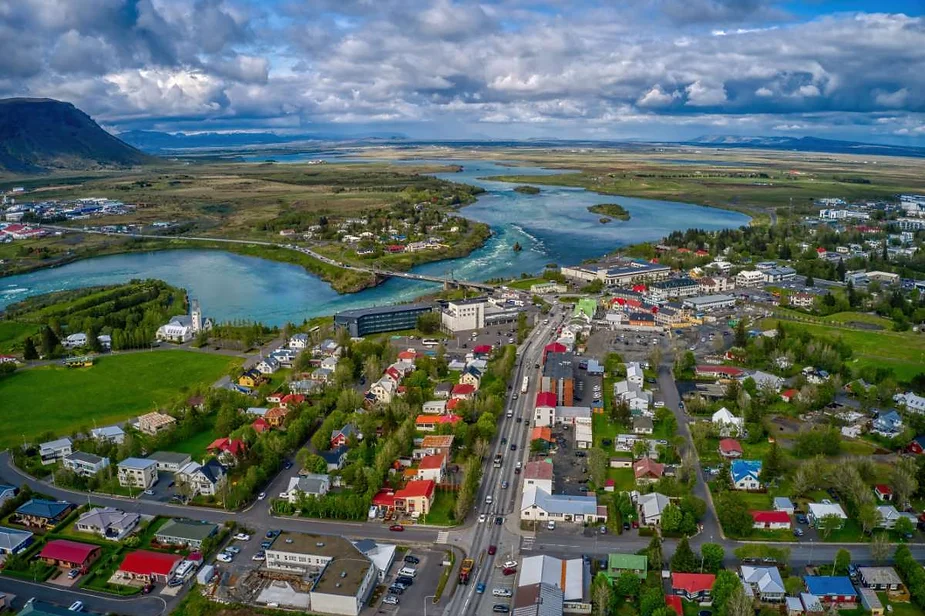
The Cost of Living in Iceland
Iceland is notorious for being one of the most expensive countries to visit. This is because, even though the cost of living is so high, the standard of living in Iceland matches that in terms of salaries and work/life balance.
But yes, when you first start living in Iceland as a foreigner, it’s going to take some getting used to. Iceland’s affordability is also wildly exaggerated. People are surprised to find that certain things are, in fact, much cheaper than back home. Below you will find a table comparing costs between Iceland, the UK, and the US:
|
|
Reykjavik, Iceland |
New York, US |
London, UK |
|
Eating Out |
|
|
|
|
Meal at an Affordable Restaurant |
$17.66 |
$25 |
$18.50 |
|
Meal at Takeaway Joint like McDonalds |
$14.13 |
$10.00 |
$8.63 |
|
Groceries |
|
|
|
|
Milk (1l) |
$1.45 |
$1.26 |
$1.37 |
|
Bread |
$3.14 |
$4.13 |
$1.27 |
|
Eggs (12) |
$5.30 |
$3.93 |
$2.92 |
|
Cheese (1kg) |
$13.85 |
$16.85 |
$7.84 |
|
Apples (1kg) |
$3.17 |
$5.62 |
$2.50 |
|
Bottle of Wine |
$19.07 |
$17.99 |
$11.10 |
|
Beer (500ml) |
$2.96 |
$3.15 |
$2.40 |
|
Transportation |
|
|
|
|
1-Way Ticket Local Transport |
$3.46 |
$2.75 |
$3.21 |
|
Taxi Tariff per 1km |
$2.63 |
$1.86 |
$2.10 |
|
Gas |
$2.24 |
$1.08 |




